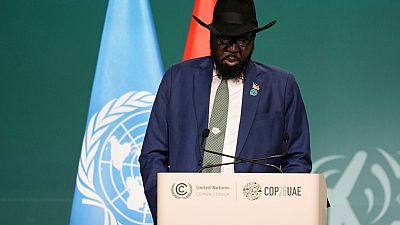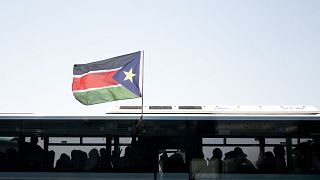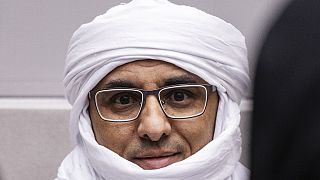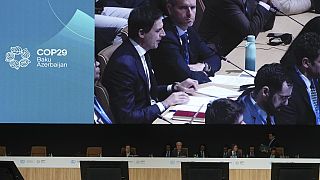South Sudan
South Sudan's government on Tuesday blamed the country's economic crisis in part on the fighting in neighbouring Sudan and the instability in the Red Sea, where Yemen's Houthi rebels have been attacking international shipping.
With most government workers not having been paid for the past of five months and the cost of living skyrocketing, Information Minister Michael Makuei Lueth told reporters that outside factors have impacted South Sudan's oil exports — the country's main source of revenue.
The news conference by Lueth was meant to provide an update on South Sudan's sluggish economy since the 2018 signing of a peace deal that ended the country's own internal conflict.
Lueth also said that oil wells, which were water-logged by heavy floods over the past rainy season, are not yet fully operational.
The low levels of productivity have been compounded by the fact that the pipeline taking South Sudan's crude through Sudan to its main Red Sea hub, Port Sudan, has been blocked in areas where there is fighting, he said.
But even if the crude oil were to reach Port Sudan, it would still not be possible to ship it because of the ongoing threats to shipping in the Red Sea, Leuth said.
"So, apart from low production, there are physical difficulties confronting the oil sector," he said. "The combination of all these factors has seriously affected" South Sudan.
Neighboring Sudan plunged into chaos in mid-April when clashes erupted in the capital, Khartoum, between rival Sudanese forces — the country's military, led by Gen. Abdel Fattah Burhan, and a paramilitary faction known as the Rapid Support Forces, under the command of Gen. Mohammed Hamdan Dagalo.
The fighting quickly spread across the African country, especially urban areas but also the restive western Darfur region, and has so far killed at least 12,000 people and sent over 8 million fleeing from their homes.
South Sudan gained independence from Sudan in 2011 following decades of civil war that cost million of lives. Soon after independence, South Sudan fought its own civil war from 2013 to 2018, when rivals President Salva Kiir and Vice President Riek Machar signed a power-sharing agreement and formed a coalition government.
South Sudan, a landlocked country, produces around 150,000 barrels of fuel a day and uses Sudanese pipelines to transfer its oil to the global market in an agreement with the government of Sudan. Sudan pockets $23 per barrel as transit fees for oil exports from South Sudan.












02:09
Russia vetoes UN resolution calling for immediate cease-fire in Sudan
01:14
Hundreds dead, thousands infected in Sudan's months-long cholera outbreak
Go to video
Mali secures $160m settlement from Resolute Mining in tax dispute
01:12
Deaths in war-torn Sudan significantly higher than previous tolls, according to new report
01:00
Sudan war: UK, Sierra Leone to propose new resolution calling for 'end of hostilities'
01:02
Sudan rolls out malaria vaccines to bolster efforts to protect children